|
In celebration of the Fourth General Congress of the Union of the Catholic Apostolate, the Catholic Apostolate Center will share weekly homilies from the Congress. Homily for July 3, 2024 “Rekindle in our hearts the commitment to be tireless missionary disciples of Jesus Christ” (From the prayer for the fourth General Congress) Dear Brothers and Sisters of the Pallottine Family,
We have taken the theme for our reflection today from the prayer for the fourth General Congress: “Rekindle in our hearts the commitment to be tireless missionary disciples of Jesus Christ.” This theme is very relevant today as we celebrate the feast of St. Thomas, the Apostle of India. He was indeed a tireless missionary disciple of Jesus who expressed his total commitment to the Risen Lord through his confession “My Lord and My God.” Saint Thomas the Apostle, also known as Didymus, meaning "Twin," was one of the Twelve Apostles of Jesus who is best known for doubting the resurrection of Jesus and demanding to feel Jesus' wounds before being convinced (John 20:24-29). This story is the origin of the term "Doubting Thomas." After seeing Jesus alive, Thomas professed his faith in Jesus, exclaiming "My Lord and my God!" presenting one of the first clear declarations of Christ's divinity. Southern India had maritime trade with the West since ancient times. Egyptian and Roman trade with India flourished in the first century. There existed flourishing trade in spices, pearls, diamonds and silk between Rome and Southern India. According to tradition, St. Thomas landed in Kodungallur, Kerala, India in 52 A.D. It is believed that St. Thomas established the "Seven and Half Churches." Here is the beginning of the Syro Malabar Catholic Church in India. I myself come from this Church, following the Syriac liturgical tradition. The tradition holds that St. Thomas was martyred during prayer by a spearing on the “Big Hill” near Madras, and was buried in Mylapore, on the east coast of India. Ultimately, St. Thomas’ remains were transported to Ortona, Italy, where they reside today. Thus, the so called "doubting Thomas" died a martyr for his faith. He became a messenger of the Gospel to India, a missionary who shed his own blood for the Master whom he encountered on that day. His insistence on touching the Holy Wounds presented the Disciple John another opportunity to explain for all of us the implications of the Bodily Resurrection of Jesus Christ. Thomas's response in his beautiful encounter with the Risen Lord, "My Lord and My God" reveals the heart of prayer. It also speaks to the essence of faith. His proclamation is a call to adoration and a living communion with God. St. Thomas was not a doubter, rather he was a believer. Pope St. Gregory the Great who occupied the Chair of Peter between 590 and 604 preached a marvelous homily on this encounter between Thomas and the Risen Lord. In it he asked: "What conclusion, dear brethren, do you come to? Surely it was not by chance that this chosen disciple, was missing in the first place? Or that on his return he heard, that hearing he doubted, that doubting he touched, and that touching he believed? God's Mercy worked wonderfully, for when that doubting disciple touched his Master's wounded flesh he cured the wound of our disbelief. So this doubting disciple, who actually touched, became a witness to the reality of the resurrection." Thus St. Thomas teaches us how to become a tireless missionary disciple of Jesus. The foundation to missionary discipleship is Baptism. As Pope Francis says, “Every Christian is a missionary to the extent that he or she has encountered the love of God in Christ Jesus: we no longer say that we are 'disciples' and 'missionaries,' but rather that we are always 'missionary disciples.'” (Joy of the Gospel, n. 120) The history of the Society of the Catholic Apostolate, like many other Congregations, shows that it was the missionary venture of one or two missionaries that led to the development of our charism in an entire country or even continent. Just one missionary went to Cameroun and Poland and today we have big Pallottine communities in those countries. Two German missionaries arrived in India in 1951 and today the Pallottines are a strong presence in this country. The Gospel is preached and millions of people are served. This is the story also of the entire Church. When the Union of Catholic Apostolate is composed of such missionary disciples of Jesus, who “are determined to remain united with the crucified and Risen Christ ever present among them,” (cfr. General Statute, n.19) it will truly be a spiritual, apostolic force in the Church. As members of the Union of Catholic Apostolate, we are all called to be missionary disciples of Jesus. We become a missionary to the extent we have experienced the love of God in Christ Jesus. Once we have touched the wounds of the Risen Lord, we go out as missionaries like St. Thomas the Apostle to bear witness to the power of the Resurrection and become healers of a broken humanity. I conclude with this prayer of St. Vincent Pallotti: “My Jesus, anyone who does not love you cannot live. May all the love of eternity, and if possible, all the love of infinite eternities, be mine in every moment for all eternity. For infinite eternities, be mine in every moment for all eternity. I be nothing but all the flames of love. My the passion of my Jesus and the sorrows of Mary be my book of all eternity, and fire and flames.” (OOCC X 226-227) Amen. Fr. Jacob Nampudakam, S.A.C. UAC President
0 Comments
2/8/2024 St. Anthony of Egypt and the Importance of Our Witness to Faith in a Secular WorldRead Now"The devil is afraid of us when we pray and make sacrifices. He is also afraid when we are humble and good. He is especially afraid when we love Jesus very much. He runs away when we make the Sign of the Cross." -St. Anthony of Egypt When St. Anthony of Egypt first ventured into the desert to become a hermit and devote his life entirely to God, he did not think that he would start the first monastic community–a tradition that would grow to be one of the life veins of the Church to this day. But St. Anthony inspired hundreds of men to follow him into the desert, living a life of simplicity and complete dependence on God. While at first this might seem ironic, that a man desiring to live alone would instead have hundreds of men following him and desiring to live in community with him, this story is seen time and time again throughout the lives of the saints. St. Anthony, St. Francis, St. Dominic, St. Clare, St. Teresa: each of these saints moved in a way that was completely contrary to the world when God called them to do so, and through their action inspired thousands of Christians to follow them and live lives of radical faith. We can often fall into the belief that our lives as ‘normal’ Catholics are not going to have an impact on the lives of others in any significant way, but as we see through the life of St. Anthony, every decision we make impacts and influences those around us. The men who followed St. Anthony into the desert did not do so because he was incredibly charismatic, or publicly performing great miracles, or telling them to follow him or they would go to hell. They followed because they saw that St. Anthony was joyfully living his life in a radically different way and they wanted to know what could possibly be going on so that their lives could be fulfilled like St. Anthony’s was. When we have a moment of conversion and the Lord calls us to be living saints, we are called in some way to radically change how we live our lives, no matter how big or small that change is. When we step into the change and choose to follow the Lord, we begin living as missionary disciples, our way of life witnessing to the reality which we live for. In the example of these saints, we see just how important it is that we live out these changes in a public way–that we live our lives in a way in which people can meet us and know that we are followers of Christ. Despite how small or big we may be in the mystical body, our unique charism matters and was created to help bring others into the fullness of the Christian life. When we look at the way we live our lives, what stands out as being unique to life as a missionary disciple? When we interact with a cashier at a store, do they experience an encounter with the Living God and the joy that comes with knowing Him? Are we willing to publicly live out our faith as an invitation for others to come and follow Christ, to have conversations with people about Jesus and invite them into the hope that we know? Do we stand for our morals and beliefs or do we allow others to conform our beliefs to this world? These are hard questions to ask ourselves, but we must take the time in prayer to reflect on whether the way we live brings others to follow the Christian faith, because others will follow our example. Thankfully as we see in the quote by St. Anthony at the beginning, the life of a Christian living for heaven doesn't have to be complicated, but is rather one of simple love for God and neighbor lived out through prayer, sacrifice, and faithfulness. Let us take the example of St. Anthony and live our lives in a simple, faithful way that shows those who encounter us that we are living for Christ, and that if they follow Christ they will find the same hope, peace, joy, and love that we witness to in the ways we live out our faith everyday. **This image is from: https://en.wikipedia.org/wiki/Saint_Anthony_Abbot_Tempted_by_a_Heap_of_Gold**
The past two months we have gotten to celebrate the feast days of many incredibly saints who can be role models for us throughout all the ups and downs of life. This September is no different. As we transition out of summer and enter into new routines in the midst of the continuing pandemic, we can turn to many of the saints this month who are known for their healing and ability to help others grow in their faith. Saints Known for Physical Healing Earlier this month on September 1st, we celebrated the feast of St. Giles. I had never heard of St. Giles until I read a blog post, from the early days of the coronavirus pandemic, about the 14 Holy Helpers. But the more I got to learn about St. Giles, the more his life inspired my own personal faith journey. Even though an injury crippled one of his legs, St. Giles was known for his miracle-working abilities for those who came to him. His mission as a miracle-worker was always centered on others, not himself. A similar selflessness was seen by two martyrs in the early Church, Sts. Cosmas and Damian, whose feast we will celebrate on September 26th. They both were doctors and did not accept payment for any of their services, recognizing the humanity in each person. They utilized their God-given skills to help anyone in need, which led them to become recognized as the patron saints of physicians. All three of these saints remind me that while this world is not our final destination, taking care of our earthly bodies remains very important. In whatever way we may need physical healing, God is eager to hear us and to help us physically as we continue to live out His mission here on Earth. Saints Known for Spiritual Healing Next week, we will celebrate the feast of Our Lady of Sorrows. The Marian feast of Our Lady of Sorrows is special because it is about the spiritual turmoil Mary experienced during her life. This is why Our Lady of Sorrows is typically represented by seven daggers piercing her heart. For me, Our Lady of Sorrows is not just about praying for the intercession of Mary, but also placing our complete trust in the Lord, just like she did throughout the sorrows in her life. This trust was also central to St. Padre Pio’s ministry. He recognized the need for spiritual healing and committed to hearing Confessions, and he understood the significant act of faith it took to go to Confession. Through the intercession of Our Lady of Sorrows and St. Padre Pio, may we take time this month to trust God with spiritual healing in our lives. Role Model Saints for Spiritual Growth This month is bookended by two saints who are role models for integrating spiritual growth into the activities of their daily life: St. Teresa of Calcutta, whose feast was celebrated on September 5th, and St. Vincent de Paul, whose feast will be celebrated on September 27th. The interesting thing about these saints is that they both could have fallen into the categories of physical healing or spiritual healing. But for me, these well-known saints have been role models for integrating caring for other people with spiritual growth. It seems easy to get so focused on our work that we forget the deeper meaning behind it. Mother Teresa and St. Vincent de Paul worked to help those in need, and they saw Christ in everyone and in every task they did. While we may not be feeding the poor of Calcutta every day, we too can try to grow spiritually by seeing Christ in every aspect of our day. As we continue throughout this month of September, let us ask for the saints’ intercession for healing and learn from their lives in order to grow closer to Christ. To learn more about the saints, visit our Catholic Feast Days Website by clicking here. To view a calendar of the feast days in September, and each month, click here.
Pope Francis eloquently writes in his post-synodal exhortation Christus Vivit, “After this brief look at the word of God, we cannot just say that young people are the future of our world. They are its present.” In the last decade, and especially since Christus Vivit was promulgated in 2019, the Church has sought to help the Church’s youth become protagonists in their own right. This is seen in many parish, diocesan, and archdiocesan initiatives to form young Church leaders. Some examples of this include creating new diocesan offices for youth and young adult ministries and the growth of many high school and collegiate campus ministry offices. Nevertheless, young people crave young role models for the Faith. Pope Francis recognized this and listed many examples, including Mary, St. Francis of Assisi, and St. Joan of Arc. In this blog, I wish to discuss three saints in particular--Bl. Carlo Acutis, St. Jose Sanchez del Rio, and St. Therese of Lisieux—and how their witnesses are a model for young people (especially youth leaders) who wish to dive deeper into a relationship with Christ and his Church. Young people everywhere crave to see an aspect of themselves in the people they look up to, and Bl. Carlo Acutis is a soon-to-be saint who allows young people to see commonalities between themselves and the saints. Carlo was a typical Italian teenager who played soccer and video games. Nevertheless, he also made great strides for God in his work, uploading Eucharistic miracles to a website to spread devotion to the Body and Blood of Christ. He was called “an influencer for God” by his mother in an America Magazine article. Bl. Carlo stands as a soon-to-be saint accessible to the Church’s youth because of his young age and his connectedness to 21st-century culture. Bl. Carlo Acutis models for youth leaders how evangelization must occur within the culture and modern media, not from an ivory tower of formal theology and scholarship. The Gospel must be spread in a way that all generations can appreciate, and Bl. Carlo accomplished that with the creation of his website. Another young person who bore witness to the Faith in the context of his own time was St. José Sánchez del Rio. Saint José was a young man growing up in Mexico during the Cristero Wars. The Cristero Wars were a series of conflicts between the Mexican President Plutarco Calles's secularist government and Cristero fighters (formally known as the National League for the Defense of Religious Liberty). The Calles government imposed the 1917 Mexican Constitution, which contained anticlerical policies and sought state atheism. Catholics across the country opposed this and began resisting through liturgical services and military resistance against the Mexican army. Saint José was a young man during the war and wanted to fight to defend his Faith. His mother, however, refused to let him formally join the Cristero Movement. This made St. José contribute to the movement indirectly and attend Mass whenever possible. Nevertheless, when a Cristero General lost his horse in battle, young José offered his, and this led to his imprisonment by the Mexican army. After being tortured to renounce his Faith, José refused and was martyred. St. José Sánchez del Rio’s witness to the Faith is one of the best examples of what a Catholic is called to do by Christ: witness the Faith within your own culture and times while not renouncing our Lord. Despite his young age, St. José believed in Christ’s love and graces, and that gave him the strength to be countercultural and stand with Jesus instead of with the popular culture and the government that stood against Him. Finally, St. Thérèse of Lisieux remains one of the most commanding forces in the Church’s lexicon for youth witnesses. Becoming a Carmelite at age fifteen, Thérèse began to pray incessantly and pioneered her famous “Little Way” for the spiritual life. St. Thérèse’s “Little Way” seeks to help people encounter Christ in their day-to-day activities and pray to Jesus with childlike dependency. St. Thérèse of Lisieux’s powerful devotion to the Eucharist, prayer, and a joyful attitude allow many to realize that one can be close to Christ no matter what they are doing. St. Thérèse stands as a strong role model for young Catholics since her relationship to Christ reached such profound depths at her young age. Young people crave role models in the Church, and older generations can find powerful witnesses and wisdom from young Catholics as well. The Church has been and must remain dedicated to telling and promoting the stories of young saints to inspire every generation to become protagonists in the Church and saints for Christ’s kingdom. Young people can be inspired by these saints since they can “…offer the Church the beauty of youth by renewing her ability to ‘rejoice with new beginnings, to give unreservedly of herself, to be renewed and to set out for ever greater accomplishments’” (Pope Francis, Christus Vivit).
There are only a few people whom I look at in biblical history and identify with on an average-human-level. It can be hard to find personal connections to many saints and holy people for me. Some were ordinary and humble, but others were so extraordinary and left big shoes to fill. It can be challenging to wrap your head around their sanctity—I know it is for me. When I hear about St. Martha though, I think, “Yes, she’s my girl.” Martha had close friends and pesky siblings, and when important company came over, she was mad no one was helping as she cleaned and cooked herself into a tizzy. She was so human, so relatable.
St. Martha, her sister Mary, and their brother Lazarus were close friends of the Lord. We hear about them from Luke’s Gospel: As they continued their journey he entered a village where a woman whose name was Martha welcomed him. She had a sister named Mary [who] sat beside the Lord at his feet listening to him speak. Martha, burdened with much serving, came to him and said, “Lord, do you not care that my sister has left me by myself to do the serving? Tell her to help me.” The Lord said to her in reply, “Martha, Martha, you are anxious and worried about many things. There is need of only one thing. Mary has chosen the better part and it will not be taken from her. This is such a great passage. It shows the humanity of these average people. It contrasts Martha, the burdened preparer and host for the occasion, with Mary, the one who sat with and listened to their wise friend, Jesus. It is a chance for those of us who get frazzled to stop for a moment and listen to the Word of God. It is a chance for us to not only let Jesus into our homes, but also into our hearts as well. Martha is so relatable. In a later moment in John’s Gospel, we hear about Martha taking a completely different approach to the Lord’s arrival. This time, he is met with her sadness but also her faith. This is a big moment for Martha. She seems to have learned to trust and believe, and thus Christ’s arrival brings hope for her even after the death of her brother. She tells Jesus that if he had been here, Lazarus wouldn’t have died, but has hope and faith that everything will still be okay. Jesus responds, “Your brother will rise.” Martha said to him, “I know he will rise, in the resurrection on the last day.” Jesus told her, “I am the resurrection and the life; whoever believes in me, even if he dies, will live, and everyone who lives and believes in me will never die. Do you believe this?” She said to him, “Yes, Lord. I have come to believe that you are the Messiah, the Son of God, the one who is coming into the world.” From this we hear St. Martha echo her own “fiat” with the words, “Yes, Lord.” This is when we see her inner beauty emerge. Her old self, prone to complaining and anxiety from hosting, has been replaced by faith. I find a lot of comfort knowing that St. Martha was imperfect and struggled—even when Jesus was in her home. Her feast day is July 29th, the day before my birthday, and I feel more connected to this saint than ever before. It wasn’t the first time that Jesus entered her home or that she listened to his words. It also probably was not the second or third time she had interacted with him, being close friends. But when the moment came for her to have hope in the Lord, she did. Patience and sitting with Christ, like her sister Mary did, might be another way to sainthood, but for Martha, her heart was not as ready to accept Him then. Her human imperfections kept her from that. Her path to sainthood was a journey comprised of moments of faith and trust, as we saw in her conversation with Jesus after Lazarus’ death. She shows us that, though we can’t always be perfect, our call to sanctity begins with the words, “Yes, Lord. I have come to believe...” During my formative years, I had the distinct privilege of spending time with my grandads and even one great-grandad. In the late 1950’s and ‘60’s, our pace of life and activities was very different from today. We attended school and church, but a lot of our time was centered around our home. Even more unique were our regular visits with extended family on a weekly basis. This afforded me time to be in the company of my grandparents frequently. I listened to their talk about work and how they solved problems and the things that occupied their time. I enjoyed accompanying my dad’s dad on outings to pick blackberries and then had the pleasure of helping in the process to make wine in his cellar. My Grandpop was a nuts-and-bolts kind of man, always busy with his work as caretaker of the cemetery, keeping their only vehicle (an old Ford truck) running, and maintaining the house where he and my grandmom raised thirteen children. It was fascinating learning things from him. I would follow him around and help load coal into their furnace and collect items from the cool cellar that housed their canned vegetables and held Grandpop’s workbench. He liked to show any of us grandkids the things he did for work, as well as the projects he worked on, such as building cedar benches for anyone who wanted one and making wine from the fruits he picked. They lived a hop, skip and a jump from the monastery church and school where they walked to 6am daily Mass. By society’s standards, Pop was minimally educated and made a meager wage that kept them in the lower economic level their entire lives. The gifts we received were hand-made and simple, but lots of time was invested in being family together. I loved being in Grandpop’s shadow and considered the cemetery near their house to be the most magical place in my world with its little streams and bridges and huge fir trees and rolling hills. Amongst those resting in peace, my dad and his twelve siblings grew up under the tutelage of my grandpop’s calloused hands and the soft-spoken voice of my grandmom. My grandmom’s parents lived just three blocks away, and my great-granddad was a successful stone mason with a shop full of heavy, rough-hewn tools that carved important information into big pieces of granite for the deceased. As an adult, I realize how fortunate I was to have enjoyed weekly visits to my great-grandparents. Great-granddad was a tall, polite, and loving man. He would sit me atop a piece of stone and include me in the conversations with my dad and other family. He had two framed pictures over the desk in his shop – the Sacred Heart of Jesus and the Immaculate Heart of Mary. As a kid, I always felt that they were watching me. These images hanging in a prominent place in his shop spoke volumes about the faith my great-granddad had. No matter how busy he was, he had a way of making me feel cherished when we came by. And a visit never ended until he sent us up to the house to get a drink and a slice of cake from great-grandmom. My mom’s dad was another wonderful grandfather with whom I spent much time while growing up. (I never met my grandmom because she died suddenly only three months after my parents were married.) Pop was a tall, handsome man who always wore a suit, and I mean always! He was retired from the phone company and had raised five children through the Depression era. His parents and aunt lived with them in a small but comfortable row home. Most of my time spent with Pop was at our house where he would come most days in the afternoons and stay through dinner. Sometimes we would pick him up at his apartment and I loved seeing his stuff. He was an avid follower of the Baltimore City Fire Department and had a squawk box to hear all the fire calls. He had boxes with index cards full of information on the different fire houses, calls, and each fireman. When my mom was growing up, he would pile the kids in his car and they would go watch the firemen fight fires. He supported the firemen with visits and gifts and had a deep respect for what they did for the community. I loved sitting at his feet in our living room listening to him tell stories of growing up in Baltimore and of his family. He was a regular member at our dinner table in his later years and always took an interest in my studies and in the things I was doing. When my parents would go away on their annual business trip, Pop would come take charge of our household. He made flapjacks for breakfast, walked me to the school bus stop and would meet me there each afternoon. I didn’t need an escort, but it was his way of sending me off. He played cards with us and told stories and made the best stew I’ve ever eaten! He made sure to remind me to say my prayers and he took us to church. Pop was present for all the holidays throughout the years, along with a lot of aunts, uncles, and cousins. Our house was the typical gathering place for my mom’s siblings and so I guess that’s why Pop always came over. In his later years when he could no longer drive, my parents wanted him to move in with us, but he insisted on his own independence and lived out his days, until he died at 89, in his apartment. As a kid, I never thought twice about Pop always being at our home. As an adult, I look back and see the treasure I had in being loved by a man who had all the time in the world to talk. It impacted me more than I realized. Mom and dad took care of the needs of the family, but Pop took the time to share himself with me and take an interest in what I was thinking as a young girl trying to figure out what was important in life. A generation removed, Pop made it abundantly clear how important each member of the family was to him, which instilled in me a strong desire for continued close family bonds in my adult life. I then watched how my dad became granddad to my six children. He was busy seven days a week and lots of nights running his business and providing for our family when I was a child, but as a granddad, he learned how to switch gears and devote attention to his grandchildren through time spent together. He took his role as grand patriarch seriously and lived out sharing the gospel of Jesus with all his grands in very simple but tangible ways. He was a great encourager of all the pursuits of each one and never hesitated to share his testimony of how God helped him on a daily basis to do what he was supposed to do. He shared prayers and taught them the power of talking with God all day long. And when my parents visited for two to three weeks each Christmas season, everyone could see how he laid out his days. He would be seen in a quiet chair early in the mornings with his well-worn prayer book praying his prayers. Then he and mom would attend morning Mass with any of us who would accompany them. He joined in our family prayer time and nightly Rosary. I have also enjoyed witnessing my husband embrace the role of Pops to our sweet grandchildren. He rejoices in the gift of each one and prays daily for them to always hear and respond to God’s call on their lives. He loves playing with them and particularly sharing his love of music with them. The treasure of knowing my granddads and being so loved by them has been a gift in my life that I know has helped me understand the love God our Father has for me. The beauty of the continuous bond from great-grandfather to grandfather to father is powerful and assures me of my heritage. The greatest lesson I learned from these loving men was to invest yourself in others and especially to build up and encourage each member. It doesn’t seem mighty or grand, but it strengthens the foundation of our lives and nurtures deep, holy growth in our specific God-ordained purpose. The richness of a grandfather’s love and care is a gift in the family. Their patriarchal leadership and security are God’s design for how families are enjoined together through the generations and meant to relate. I have had the privilege of this delightful heritage and my prayer is that it will continue to be nourished by the fathers to come in our family. For more resources on Marriage and Family, please click here. To learn more about the Year of St. Joseph, please click here.
Over the last several years of my life, I have read, studied, and written hundreds of pages about what Pope Francis meant when he said in Evangelii Gaudium that “The Church will have to initiate everyone – priests, religious and laity – into this ‘art of accompaniment’ which teaches us to remove our sandals before the sacred ground of the other” (169). However, nothing has ever taught me more about accompaniment than one of the most special people I have ever known in my life: my grandmother.
My grandmother, Edith Lauritzen, was born a second-generation Irish Catholic in 1928 in Queens, New York. She was soft-spoken but had a hearty laugh that made an appearance in most conversations. Her favorite food was Chicken Parmesan, and she taught me the first prayers I ever learned. Sometimes, my grandmother would pick my sister and me up after school and treat us to ice cream. She would ask us about our day at school, and listen generously, as if the happenings of my sister’s and my days at elementary school were the most riveting and important things she could devote her time to. I spent a good bit of my early childhood with my grandmother, and when my grandfather passed away, she moved in with my family to a small bedroom on the first floor of our home. In our house, my grandmother was a steady presence in my life; her warmth, laughter, and joy were always a comfort. I enjoyed spending time with her and would sometimes wake up early in the morning if I heard her making her breakfast of toast and coffee in the kitchen just so that I could spend time with her. As I grew up, our shared Catholic faith became a topic of frequent conversation. In middle and high school, I remember spending hours talking with her in her bedroom. My grandmother’s room was small, with space only for her bed, dresser, and an armchair. The feeling of my foot falling asleep sticks with me as I reflect on talking with her, as sometimes our conversations lasted hours as I sat cross-legged on her wooden floor. Beyond some vague memories of the topics of prayer, the lives of the saints, and my hopes to visit St. Peter’s basilica one day, I do not remember anything specific about the topics of conversation. Rather, what rises to the surface in my memory of those conversations with my grandmother is her listening, her interest in my thoughts, and her joyful, warm presence that created the space for me to speak up and share my insights with a woman with 65 more years of life experience. Now, I look back and know that I might have spoken with a little too much certainty about God and the things of faith, and probably mused a little too grandiosely about my reflections on what certain Gospel readings meant. However, that didn’t matter to my grandmother. This was the gift that my grandmother gave to me: taking my faith, questions, and thoughts seriously. My grandmother could have seen my early, inexperienced love of my faith as childish or naïve. Instead, I think she saw my faith as wisdom, blooming and in process, attempting to make sense of God and life. In front of my grandmother’s armchair and unbeknownst to us both, my vocation as a theologian and woman of faith was being nurtured and cultivated. After my first year at college, my family had to move my grandmother to an assisted living home as she needed more care than we could provide at my house. I was devastated. My home felt like it lost a little bit of warmth. However, that first summer after my freshman year of college, I made it part of my daily routine to visit my grandmother. I spent afternoons with her, listening to her thoughts and reflections on her life, her stories about growing up with the other children in her neighborhood in Queens, and her relationship with my grandfather. We laughed as she told stories about living in New York, what it was like to go to Mass in Latin, and why she loved St. Thérèse (her favorite saint). Before moving to the assisted living home, my grandmother had never lived away from home, so sometimes, she would cry. I learned in those moments that what was important was not me offering some nugget of wisdom from our faith that would help her to reframe her thinking, but for me to be there, hold her hand, and be present. In the days after those afternoons where there were more tears than laughter in her voice, I would make sure to bring her a cup of chocolate ice cream to lift her spirits. It did not take long for me to realize it was now my turn to accompany my grandmother, just as she had accompanied me in my childhood and teenage years. Two summers later, my grandmother passed away. It was one of the most painful days of my life. At the same time, I was overjoyed at the thought of my grandmother getting to experience something so much better than our hours of conversation together about our faith: God himself. At my grandmother’s funeral Mass, one of the hymns my family selected was “O God Beyond All Praising.” While the entire hymn is a perfect way to describe the gift that my grandmother was to everyone she encountered, the words of the second verse have always particularly stuck out to me when I think about her: “The flower of earthly splendor in time must surely die, its fragile bloom surrender to you the Lord most high; but hidden from all nature the eternal seed is sown - though small in mortal stature, to heaven's garden grown” In reflecting upon my relationship with my grandmother, I think about how her accompaniment of me planted seeds in my life that continue to bloom and grow. Though she was older and weaker, my grandmother passed on to me the gift of faith, a gift that is an eternal reality that we share, and that I hope will bring us together in the next life. Even when my faith was more composed of immature certainty and over-zealous explanations of Scripture, my grandmother saw more than that. And, when it was my turn to accompany my grandmother in the last years of her life, she gave me the gift of continuing to grow these seeds of faith through my own cultivation of patient listening and presence. For me, my grandmother is a model of accompaniment, and was a witness to what Pope Francis writes in Evangelii Gaudium of the listening and patience required in accompaniment: “Only through such respectful and compassionate listening can we enter on the paths of true growth and awaken a yearning for the Christian ideal: the desire to respond fully to God’s love and to bring to fruition what he has sown in our lives (171).” Through my grandmother’s love, I learned to listen to God and respond to His love. I know the seeds of my faith are continuing to grow and bloom even after my grandmother’s death as she accompanies me with her prayers. For more resources on accompaniment, please click here.
Over the past year as I helped develop the Catholic Feast Days website, I was always struck by the number of saints whose feast days were in July. As we enter into this July, I found myself reflecting on the lives of the saints whose feasts are celebrated this month. From apostles to saints in our era and everywhere in between, the lives of the saints celebrated this month have offered great spiritual nourishment to me. Three well-known Saints: This month we get to celebrate three powerhouse saints: St. Benedict, St. Bonaventure, and St. Ignatius of Loyola. Sometimes I find it hard to relate to some of these well-known saints. St. Benedict helped found modern monasticism. St. Bonaventure was one of the greatest theologians of his time. St. Ignatius of Loyola founded the Jesuits. Together they set a pretty high, almost discouraging, standard that feels hard for me to reach. But, as I continue to learn more about their lives, I realize that throughout their ups and downs, they offered themselves to God, no matter how high the mountain or low the valley. Likewise, God is calling us to follow Him. He is calling each of us individually, wherever we are in our lives, to do the same. Four Saints on the Way: Starting later this week, we get to celebrate four ‘Blesseds’ in the Church: Bl. Pier Giorgio Frassati, Bl. Maria Romero Meneses, Bl. Stanley Rother, and Bl. Solanus Casey. Even among these four Blesseds, I can see the beauty in how God calls each of us personally. Whereas Bl. Pier Giorgio Frassait was a young Italian known for his social activism, Bl. Maria Romero Meneses was a Nicaraguan sister who devoted her life to teaching and helping all throughout Central America. Whereas Bl. Solanus Casey was a humble American Capuchin known for his spiritual counseling, Bl. Stanley Rother was an American pastor who volunteered for mission work in Guatemala for 15 years until he was martyred in 1981. Through the witnesses of their lives, these four Blesseds inspire me to live my life striving for holiness in whatever way God is calling me. Families of the Saints: Throughout this entire month, we are reminded of the importance of family in the lives of so many saints. Sts. Louis and Zellie Martin are the parents of two saints, including the well-known St. Therese of Lisieux. St. James the Apostle is the brother of St. John the Evangelist, also one of the Apostles. Sts. Joachim and Anne are the parents of Mary, the grandparents of Jesus, and the patron saints of grandparents. St. Bridget of Sweden is the mother of St. Catherine of Sweden. All of these saints helped me reflect on the importance of our families in our journey of faith. For many of us, let us follow the model of these saints and take advantage of the easing pandemic restrictions to get to see family members we may not have seen in well over a year. Not as well-known Saint for the Month: One saint in July who I wasn't very familiar with was St. Camillus de Lellis. I eventually learned that he was one of the patrons of the sick. The religious order he founded, the Camillians, is known as the Ministers to the Sick. What I find particularly inspiring about his life was that St. Camillus himself was sick most of his life and was in a state of constant suffering, yet he still devoted himself to this ministry. There are stories of him being unable to walk. Instead, he would crawl to visit the sick. Even as there is a light of hope to the eventual ending of the pandemic, let us continue to hold in prayer those who are sick with any ailment and those who care for them, and let us as the People of God pray for the intercession of St. Camillus. As we go throughout this July, let us walk with the saints as role models for offering to God all of our highs and lows while trusting Him wherever He leads us. To learn more about the saints, visit our Catholic Feast Days Website by clicking here. To view a calendar of the feast days in July, and each month, click here.
Faith is a gift. The ability to practice that faith, to worship freely, to share our faith in the public square, is also a gift. Each year, the Church in the US observes Religious Freedom Week. This year, we focus on Solidarity in Freedom. In Fratelli Tutti, Pope Francis writes, “Solidarity means much more than engaging in sporadic acts of generosity. It means thinking and acting in terms of community” (Fratelli Tutti, 116). The theme of Solidarity in Freedom forces us out into a global mindset, to one of community and fraternity. I’d like to focus on Religious Freedom Week through the stories of two men 400 years apart, Safa Al Alqoshy and St. John Southworth. At the 2018 Synod on Young People, the Faith, and Vocational Discernment, Safa Al Alqoshy, the only youth delegate from Iraq to the Synod, shared the story of the struggle of Iraqi Christians. While I didn’t meet Safa in my time at the 2018 Synod, I was around him during the 2019 Post-Synod Forum in Rome on Christus Vivit. His stories from the Synod followed him back to Rome where he was met with great admiration. Even though he had to arrive at the Forum late, the community that formed with him was immediate. Safa said to Crux, “It’s very important to pay attention that there is not only persecution by killing, there is a persecution by psychology, by feelings. You feel that you are alone, that you are not supported” (Crux). Safa expressed the reality of friends and family fleeing from Iraq, likely not to be seen again. He wasn’t just speaking generally about the people of Iraq, but from his own personal experience. He shared about two of his friends who were killed in a car bombing in 2009 and how Safa and his friends shared the common experience of saying, “see you next week” only to never see one another again. The temptation can be to take Safa’s story, and the story of so many Christians like him across the world, and to use it for our own advantage. To share it as an example, but one devoid of the personal reality which courses through its proverbial veins. When we share Safa’s story as just another example of the terrible persecution that Christians face, even worse as a “look what could happen to us next” story in relation to religious freedom in the US, we fail to show solidarity. We dehumanize those who have died, those who have been separated by the flight for freedom and safety, and we turn our suffering brothers and sisters into objects whose story we use for our perceived gain. No, instead, Pope Francis urges us to be in true solidarity with Safa and his friends and family, to think and act in community. We must pray for them, we must give when we can give, but we cannot use them as pawns in a game of politics that is antithetical to true solidarity. About 400 years before Safa there lived an English priest by the name of John Southworth. John was born around 1592 and was ordained in 1618 at the English College, Douai in France. St. John was arrested and imprisoned multiple times throughout his life, all for being a Catholic priest. Between his imprisonments, St. John would serve the plague victims of Westminster and provide sacraments to the sick and dying. St. John was arrested for the final time in 1654 and was sentenced to be hung, drawn, and quartered. His body was returned to France in 1655 and buried after having been, literally, put back together. During the war between the English and French in 1793, St. John’s body was buried in an unmarked grave where it remained until 1927 when the grave was discovered. He was canonized in 1970 by Pope St. Paul VI. John’s story is one of perseverance and solidarity. He was arrested multiple times and, eventually, killed for his Catholic faith. All throughout that time, he remained in solidarity with the English people, serving them through the sacraments, refusing to allow his own persecution to stand in the way of his Gospel mandate to be Christ to the world around him. Religious Freedom Week invites us to be, like St. John, fervent in our faith. It reminds us that, even in times of persecution, we carry on in sharing the Gospel. The week also invites us to remember those in our days who are persecuted, such as Safa and our brothers and sisters in Iraq. Solidarity means that we are united with them in prayerful community, but never using them for our own means- detaching their story from their persons. May we pray for all persecuted Christians and reflect upon the meaning of religious freedom this week with the hope of growing in solidarity with our brothers and sisters across our Universal Church.
Have you ever evangelized in the streets? St. Vincent Pallotti did in the Rome of his day. He would go to a piazza and begin preaching. People would gather around. Some priests even judged him for engaging in this type of evangelization because they considered it beneath his dignity as a priest. However, he knew that many people did not come to church. Pallotti believed that the Church needed to go to people and not wait for people to come to church. These truths hold firm today. This is the call of all the baptized. We are sent by Christ into the world to preach his Gospel by word and deed – to be his witness in the world as his apostles or missionary disciples. Pallotti wanted to preach not only to those who did not believe, but also to Catholics in order to revive their faith. It may seem strange to evangelize in the streets, but in my hometown of Hammonton, New Jersey, Catholics have been doing so for 145 years. Every year, Catholics in the community have participated in an annual procession through the streets of the town in honor of the Blessed Virgin Mary under the title of Our Lady of Mt. Carmel, whose feast day is today. This is a very public display of faith that spills out from the church building and into the streets—mirroring the work of Pallotti. We are told “Go” at the end of Mass, but go and do what? Go into the streets, not only the literal ones, but also the ones online. We are moved outward by Christ. Our faith in Jesus Christ and our experience of his infinite love and mercy is not our private matter. Nor is it ours to decide the quality of another’s life of faith. Our mission is to witness Christ to all we encounter and accompany them into an encounter with him, in and through the community of faith, the Church. Through good accompaniment, sincere community, and deeper conversion, all can come to know that they are sent by Christ. May the charity of Christ urge us on! When I was a senior in high school in the diocese of Joliet, then-Bishop Peter Sartain came to celebrate one of our monthly school Masses. I was asked to assist the Bishop for the day, and throughout the day he and I had many warm conversations. I received a piece of mail a few weeks later from Bishop (now Archbishop) Sartain containing a handwritten note and several prayer cards with Blessed Pier Giorgio Frassati’s image on them. Little did I know that the young Blessed would soon become one of my dear patron saints. In my opinion, anyone who offers their life as an apostle on mission—including lay and ordained ministers, Catholic school employees, catechists, and all spiritual guides—should keep Blessed Pier Giorgio Frassati as their patron saint and their example to combat despair and to joyfully share the Gospel. Blessed Pier Giorgio shows us the Christ-like demeanor and personality that the Church and her ministers and missionaries should possess as they evangelize the world. Blessed Pier Giorgio makes an excellent spiritual guide and mentor because he was an ordinary young man with a profound commitment to the poor and to justice. There are countless books and articles that describe how Pier Giorgio spent hours serving the poor and the homeless, often giving away the money he had for bus fare and even his own jacket! His parents misunderstood his great actions of charity, and often scolded him when he returned home late without his coat. He was never distracted from the missionary imperative of the Gospel. Instead, he served those on the margins as Jesus commanded. Archbishop Wilton Gregory of Washington D.C. recently stated in a webinar, “The Church lives in society. The Church does not live behind the four [walls] of the structures where we worship.” Just as Pier Giorgio Frassati befriended the poor and sought justice as a “man of the beatitudes,” we too must go beyond the four walls of our churches, homes, and offices into the margins of our society to serve our brothers and sisters and work for justice. Blessed Pier Giorgio also accompanied others in their pursuit of God. He maintained unlikely friendships and was neither bound up by cynicism nor weighed down by scandal. Instead, he actively worked against these in his interactions with all. Many stories detail his love for pranks, making bets with his friends over games and making the stakes be attending Mass or Adoration. Like this soon-to-be-saint, we must live in the world while encouraging others to return to Christ in the spirit of friendship. As apostles on mission, we must live, work, and play with a renewed spiritual vision, driven by the practice of spiritual accompaniment. The quality I most admire in Blessed Pier Giorgio is his ultimate trust in God’s plans. He did not try to take control of his life’s plan nor did he envy God’s authority. Rather, he allowed God to guide him as he discerned his future and his mission in life. Pier Giorgio brought Church doctrine to life through his service and actions. He lived with a gospel-inspired freedom. He spent time in deep prayer, contemplating the mission God had laid before him, discerning to serve the poor as a lay man with expertise in mechanical engineering rather than as a priest. Pier Giorgio trusted God. As Alfonso Nebreda, S.J. wrote, “We must not forget that man cannot nourish his spirituality with orthodoxy alone … there is more to Christianity than this … for faith is life” (Kerygma in Crisis?, Nebreda). Blessed Pier Giorgio embodied the Gospel, and he lived it out according to his mission from God. As we consider the life of Blessed Pier Giorgio Frassati, I invite those who serve the Church as lay or ordained ministers, catechists, educators, and spiritual guides to adopt this young saint as a guide for our spiritual lives and our ecclesial missions. Let us invite the same Spirit who lived in Blessed Pier Giorgio and who makes the Church vibrant to renew our hearts, minds, and missionary efforts. Blessed Pier Giorgio, pray for us! Interested in learning more about becoming an apostle on mission? Click here to learn more. 3/30/2020 The 14 Holy Helpers: Turning to the Saints During the Coronavirus | COVID-19 ResourceRead NowThe other day I drove past a grocery store that had people waiting in line to get inside and stock up on food and other supplies due to the continuing spread of COVID-19. Most of us have seen pictures of empty store shelves devoid of food and medicine as people make a mad rush to make sure they have what they need to self-quarantine for an extended period.
An equally startling yet vastly different image is that of empty church pews during the numerous Sunday Masses being livestreamed from Catholic parishes around the world. Whereas the emptiness of store shelves suggests the preparedness, albeit over the top at times, of consumers, the emptiness of Church pews suggests the possibility of the Christian Faithful not having the spiritual support which they need during this pandemic. Fortunately, the Church has been through pandemics before, and an examination of our past offers insight for our days ahead. At the outset of the Bubonic plague, commonly referred to as the Black Death, Europe’s faithful sought heavenly aid to withstand the suffering caused by the plague. Various communities invoked the Blessed Mother and the saints for protection against the plague. One of the most interesting and enduring of such devotions comes from Western Germany where 14 “auxiliary saints” were venerated together as the Fourteen Holy Helpers. The Fourteen holy helpers were:
Pious legend tells of a shepherd boy receiving a vision of the 14 Holy Helpers in a field near the German town of Bad Staffelstein. After this, a church was erected on this spot and miraculous healings began to occur on account of the intercession of the Holy Helpers. A shrine church still stands in Bad Steffelstein to this day where pilgrims continue to go and seek the help of the Fourteen Holy Helpers. As this group devotion spread to other countries, new helpers were added for more popular saints in any given region including St. Nicholas, St. Sebastian, and St. Rocco (Roch). Regardless of which saints composed the group of helpers, the people of Europe implored the Helpers’ aid against the harsh symptoms of the Black Death. Today, the world once again suffers from a pandemic, the outbreak of the novel Coronavirus. Though medicine and science have surely advanced and we know much more about diseases and how they spread than medieval Europeans, maybe those Christian faithful of the past can teach us an important lesson: the lesson of faith and trust in God. As we adapt our lifestyles to work from home, social distance ourselves, and view Mass via livestream, let us not forget the great cloud of witnesses who watch over us from heaven. May we turn to their help during these challenging times. Fourteen Holy Helpers, Pray for us! Joseph Basalla is a graduate from The Catholic University of America living in the Washington, DC area. In the movie The Farewell, the central plot hinges on the question of an individual vs. communal approach to the burden of end of life care. One of the central characters has cancer, and the issue surrounding the family is whether the person with the disease should know or not. In the US, as the movie acknowledges, such duplicity would not be likely to happen, but in China, where the movie takes place, society often allows for such things because they believe the burden of suffering is to be carried by the family and friends rather than the sick or afflicted. I found that to be a fascinating concept because most of us have experienced the loss of someone due to cancer, and the question of death and mourning is a very present concern to all of us. I would recommend viewing the movie, if for nothing less than to understand the potential hardships of walking with someone who is about to die and with those that love them. Our faith acknowledges that our time on earth is not all that there is, but rather that we are made for heaven and joining God. The Catechism of the Catholic Church declares: “The Christian funeral is a liturgical celebration of the Church. The ministry of the Church in this instance aims at expressing efficacious communion with the deceased, at the participation in that communion of the community gathered for the funeral, and at the proclamation of eternal life to the community (CCC 1684).” As Catholics, we believe that there is life after our life on earth. So the funeral and death itself serve as reminders of the Paschal Mystery and our hope for all—and in particular, those who have just died—to have eternal life in heaven with the Lord. The prayer spoken while receiving ashes on Ash Wednesday is a poignant reminder of this: “Remember you are dust and from dust, you shall return.” Time on earth is fleeting, but time in heaven is eternal. As Catholics, we are part of a community of believers. We must not only accompany the one who is preparing to die, but also those who the deceased is leaving behind. This is not the responsibility solely of the priest or deacon presiding over the funeral rites, but rather a shared responsibility of all the church. The Catechism goes further to explain that funeral ceremonies have the Eucharistic Sacrifice as a critical component because: “It is by the Eucharist thus celebrated that the community of the faithful, especially the family of the deceased, learn to live in communion with the one who ‘has fallen asleep in the Lord,’ by communication in the Body of Christ of which he is a living member and, then, by praying for him and with him” (CCC, 1689). It is essential as a community of faithful to also accompany those left behind who are grieving the loss of a loved one. This grief is normal and completely human, but it means that we need to accompany those grieving and serve as a living reminder of Christ’s presence in their lives. We are called to serve as witnesses to those we encounter daily, whether we know them well or not. As stated in the book the Art of Accompaniment: Theological, Spiritual, and Practical Elements of Building a More Relational Church: “Witnessing can be effective even if a deep, committed relationship is not yet formed…witnessing demonstrates an example of an integrated Christian life within the one who witnesses. … Witnesses are essential to the process of spiritual accompaniment because, ‘modern man listens more willingly to witnesses than to teachers, and if he does listen to teachers it is because they are witnesses (Evangelii Nuntiandi)’ (Art of Accompaniment 16)” Times of suffering and hardship are especially profound moments for evangelization and witness. As a Church, we can offer hope and healing to those who are dying or grieving the loss of a loved one. For more resources on Accompaniment, please click here. I’m blessed to be a part of a family which includes three different vocations: marriage, religious life, and the discernment of the priesthood. The annual March for Life, which occurred this year on January 24th, provided my wife and me an opportunity to host not only her sister who joined a religious order, but also several members of the religious community. As they are part of a semi-contemplative order, the sisters made the most of their time in DC touring the city, visiting historic and spiritual sites, and learning in museums—all while sharing a public witness to their vocation. As their hosts, my wife and I had a unique vantage point which allowed us to see the reactions of passersby, both the bewildered and the curious, who are not accustomed to seeing women religious in public. The sisters are used to it, and more importantly, realize they have an opportunity to evangelize and share with others who they are and what their vocation is. Often a chat or introductions will be made, prayer cards will be given, and some pictures are taken (whether stealthily or outright). I noticed the sisters made the most of these moments, probably because they realize they can bring anyone they meet into an encounter with the Lord. The sisters and their joy witness to God’s fidelity in ways often unknown. At the Vigil Mass for Life at the Basilica of the National Shrine of the Immaculate Conception, the sisters were just a few of the many women religious present. Though each order’s habits are different, I noticed many pilgrims came up to the sisters after the Mass to inquire about their order and their distinct purple habits. The same happened at the March for Life the next day: many people simply took photos of or with the sisters, others exchanged pleasantries, memories, and prayer cards, and others ran up to the sisters and thanked them for their vocations or wanted to learn more about the order. Returning home with them across town that afternoon, however, we left the massive crowds who shared our values and encountered the daily commuters of DC. I was amused to watch them look up in surprise from their smartphone screens. The sisters would happily engage with their fellow passengers, chat about religious life, and in one case, ask a practicing Hindu about their bindi, or a vermilion mark. Similar scenes occurred over the weekend. but it wasn’t all like a celebrity sighting: on more than one occasion, the sisters would go up to a homeless or mentally-ill person and, after chatting a bit about Jesus and Mary, share a miraculous medal and holy card to remind them about faith and invite them to trust in God. These were people used to being passed by on the sidewalk each day as they begged for food or for someone to listen to and be with them. Imagine the shock they experienced when “strangely dressed” women were suddenly engaging with them and treating them with respect and compassion! There is no way of knowing just how God may have used the sisters as a means of planting the seeds of faith in various encounters. Certainly the unusualness of the situation might shake someone out of their complacency and eventually cause them to recall a positive memory of faith from youth or simply remember consecrated persons live and act in the world as a beautiful witness to… something. That something may lead to a renewed quest for truth or personal peace. In God’s good time, this yearning may be a motivation to reconnect with God and embrace a life of faith and holiness. But all of us, especially laypeople, are similarly called to holiness by virtue of our baptism in Christ Jesus. We need not depend on wearing a religious habit to draw others into an encounter with the Lord, but can invite others in our schools, workplaces, social gatherings, and homes to participate in religious practices such as grace before meals, going on a pilgrimage to a holy site, reading books by the saints, or simply starting a meaningful conversation. The options for spiritual accompaniment are endless. Given time, prayer, and trust in the Lord’s will, each of us can instill the smallest seed of faith which can grow into a towering wonder. For more resources on Vocational Discernment, please click here. To learn more about spiritual accompaniment, please click here. I lead the Catholic Volunteer Network (CVN) – but am not Catholic. My journey to this unique place has not been overnight or accidental. It comes from years of commitment to unity.
CVN is the leading faith-based service organization fostering full-time, faith-based lay mission service. Our membership consists of 155 Christian volunteer programs serving throughout the U.S. and in over 100 countries. In any given year, up to twenty percent of our programs may be identified as Protestant. In addition, volunteers who serve in CVN programs range from cradle-Catholics to spiritual seekers. Recently, the CVN Board of Directors affirmed the importance of witnessing to our identity as Catholic and ecumenical. This approach works because, to a great degree, both CVN programs and volunteers respect each other’s identities and goals. As they learn about each other via extensive application processes, a relationship of understanding and trust begins. The result is clarity about needs and expectations, and in many cases a willingness to engage with “the other” for a significant amount of time. When a year-long volunteer community is ecumenical, learning that enhances and transcends that experience can transpire. CVN thinks that is good—that faith and mission throughout life in a complicated world requires an openness to understand other approaches to faith, community, and service. Openness to different experiences put me on a path of fostering Christian unity. Therefore, when a role with CVN became a possibility, I was drawn to it not despite it being Catholic – but because it is Catholic. I wanted to be part of a network discerning how a commitment to Jesus Christ unites us and enhances witness to his Gospel in the world. But I did not get to that place without a mixture of providence and intention. Years ago, I was the Director of Public Policy for Call to Renewal (CTR), a diverse network of national churches and faith-based organizations united to overcome poverty. CTR’s vision was that Christians from across the theological spectrum working together could inspire other Christians to foster relationships across denominational affiliations, as well as inspire political leaders to work together across the aisle. It was an attempt to break down the divides created by labels such as liberal and conservative, and to honor a range of anti-poverty strategies often considered to be at odds with each other (e.g. strengthening families and supporting government programs). Members of CTR included Protestants, Evangelicals, Catholics, Peace Churches, and more. National leaders from these churches agreed that progress could be made to reduce domestic poverty if they chose not to allow theological and doctrinal differences on other matters to prevent collaboration. Because of this, many Christian leaders met counterparts for the first time and nurtured relationships grounded in openness and a willingness to learn. Many found a new respect for different approaches to faith, as well as different views on how to reduce poverty. That experience and others broadened my theological and political perspectives. Since then, I have sought to build relationships and bridges. I still have convictions and disagree with others, but am less likely to judge quickly or to shut doors. I am more likely to be curious about how God wants me and others to engage despite differences. Sometimes unity means affirming a shared connection to Christ, getting to know another, and seeing where that leads. Sometimes it is a strategic partnership to pursue change. I just try to witness to what I believe – and pray God can act through me and others. I pray that you, too, find special ways of witnessing to the strength of Christian unity. I pray that openness and experience will transform you. The world needs our example. To learn more about Christian unity, please click here. To learn more about faith-based service opportunities with the Catholic Volunteer Network, please click here. |
Details
Archives
July 2024
Categories
All
|
About |
Media |
© COPYRIGHT 2024 | ALL RIGHTS RESERVED


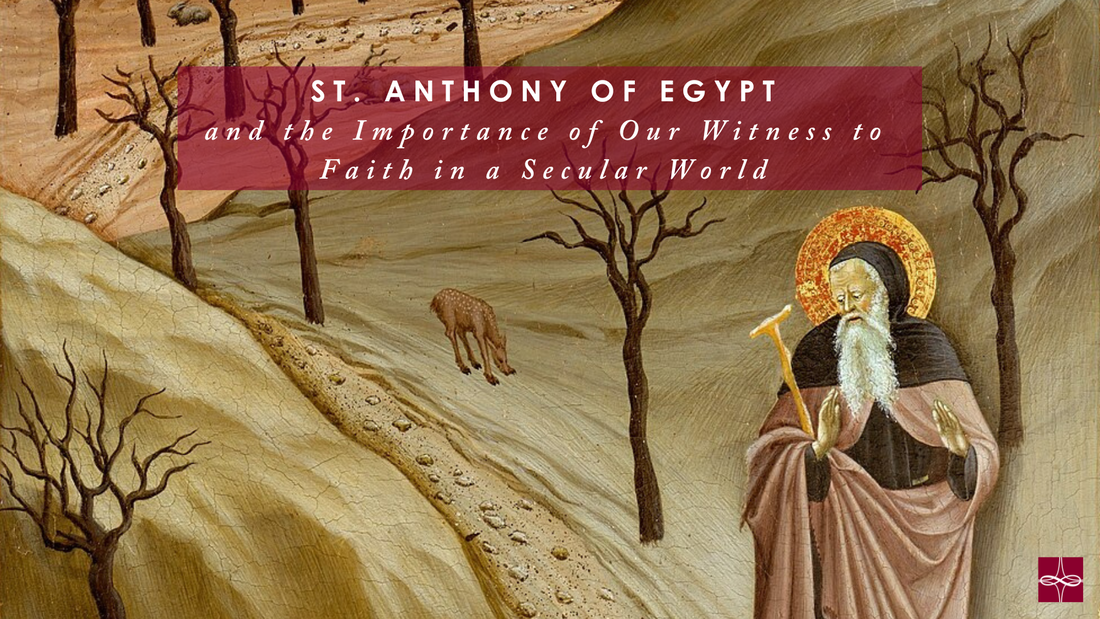

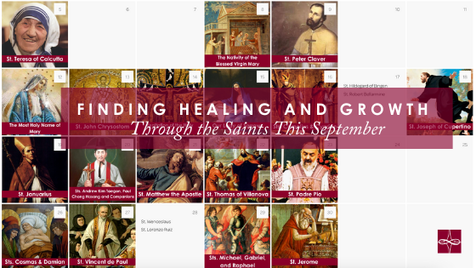



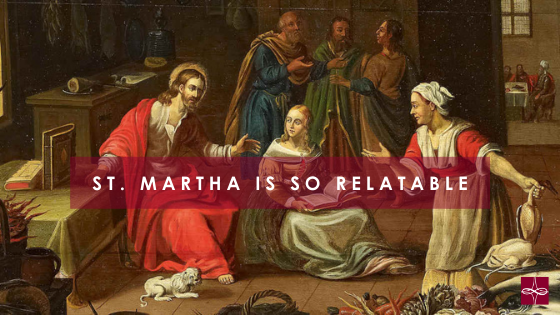




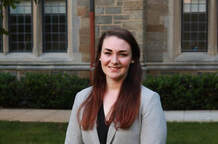
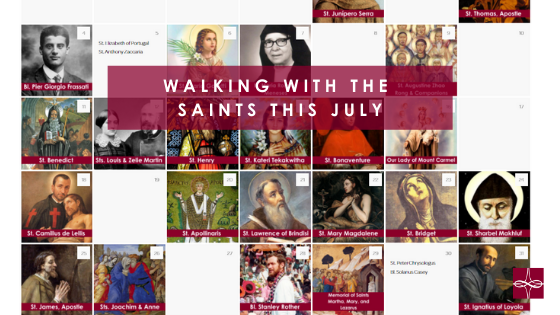


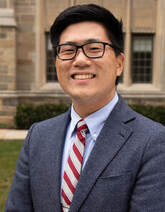
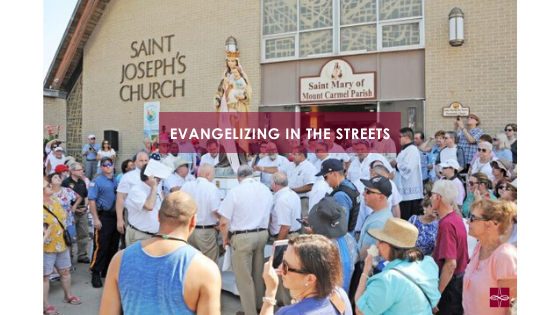
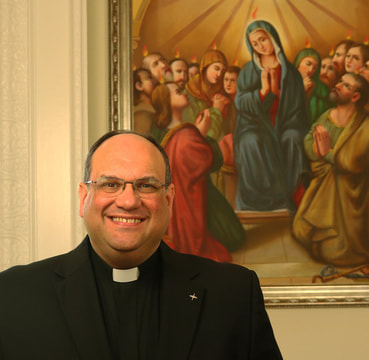
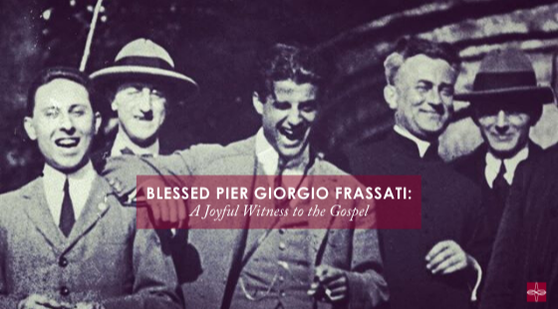

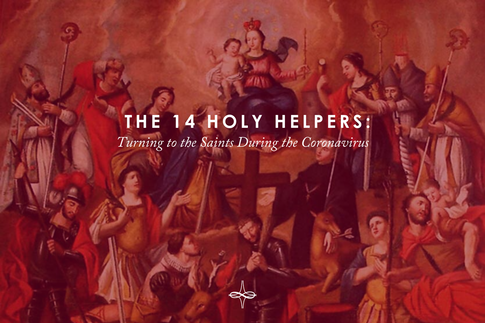
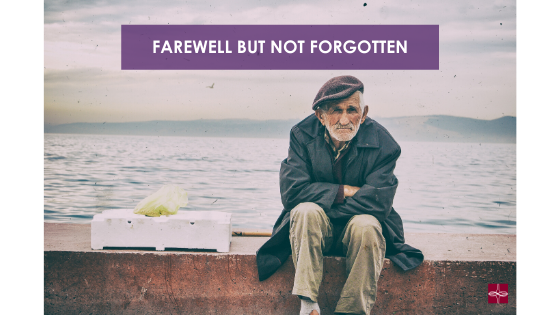

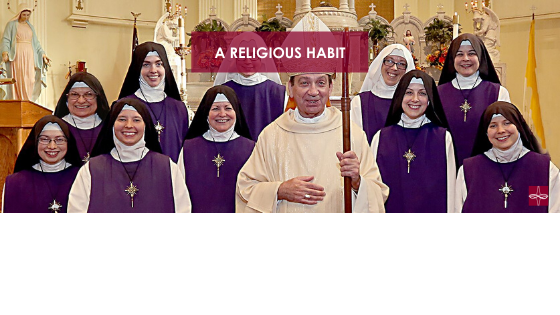

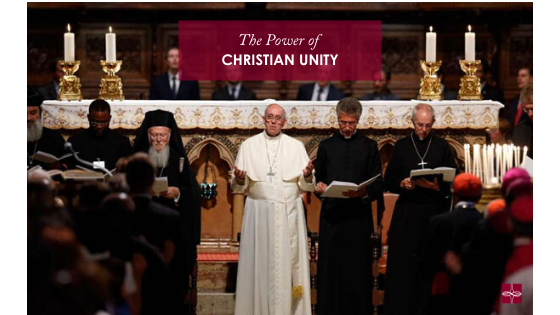

 RSS Feed
RSS Feed